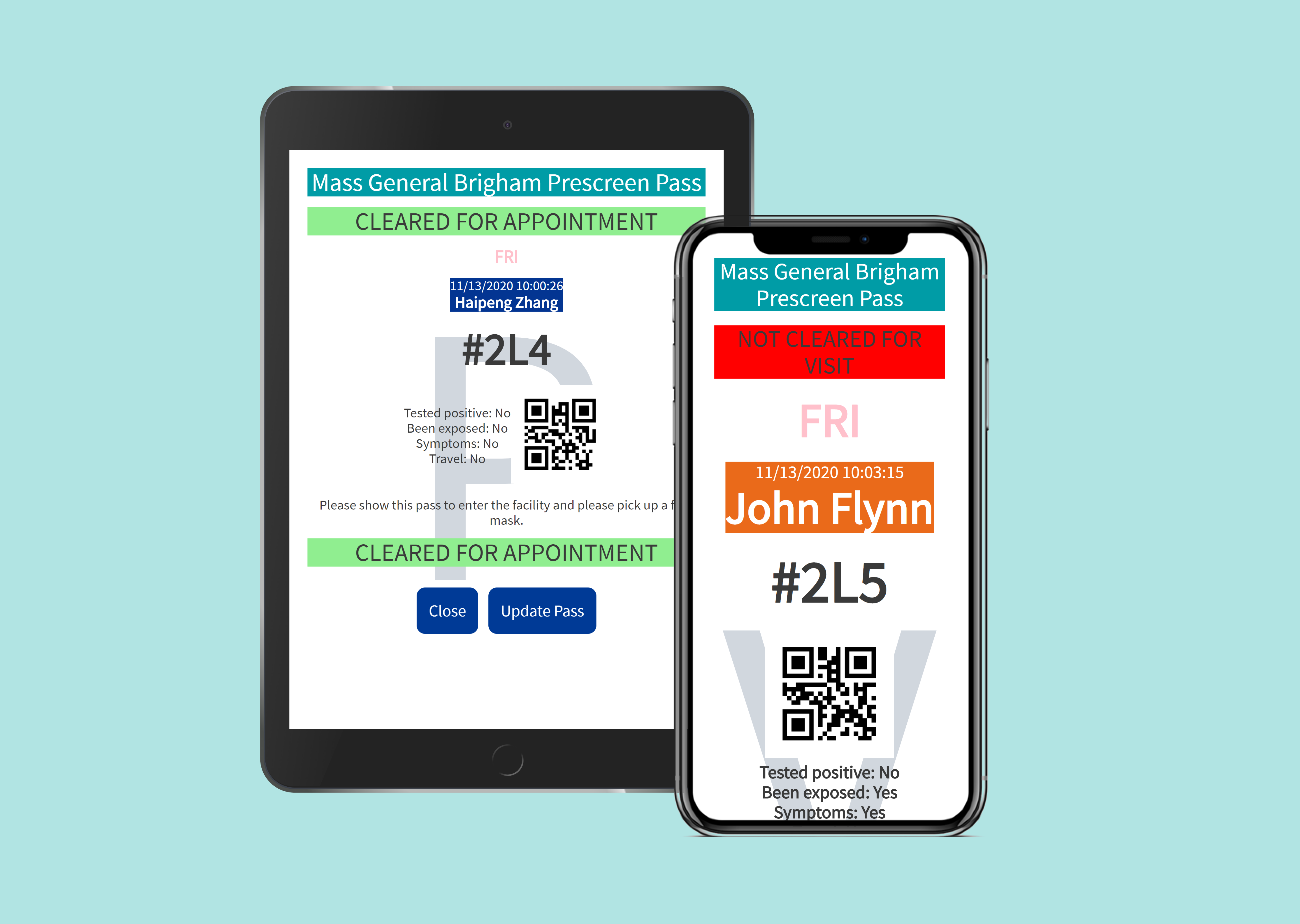By Caroline Coy and Mimi Dunn
In mid-October, over 4,000 attendees convened to join the virtual HLTH conference. The Brigham Digital Innovation Hub (iHub) participated as part of our Outside-In initiative, which identifies and matches external partners with digital health priorities of the hospital. We were also invited by HLTH to join leaders from the venture capital world to help select promising startups for a showcase promoting diversity in health care, focusing on companies with founders from an underrepresented community or those that provide solutions for underserved communities. HLTH provided us an impressive forum to engage with organizations from around the country to learn how they are responding to COVID-19 and addressing the pandemic through innovative digital health initiatives and solutions.
For much of 2020, the iHub team has supported Brigham and Women’s Hospital’s COVID response and recovery efforts, using our expertise to quickly evaluate and implement digital solutions. Our COVID accomplishments span a wide range of operational and strategic efforts, including our award-winning COVID Pass app for employee symptom screening, Mass General Brigham (MGB) Prescreen app for screening patients and visitors, and digital solutions to uphold our Safe Care Commitment, among others. While we will continue to support COVID-related efforts, we also look forward to supporting new priorities and partnerships. We have outlined several top-of-mind considerations below, which are informed by the thoughtful and relevant discussions we engaged in during HLTH.

We all play a role in addressing health equity.
It’s important to consider health equity in the design of digital health applications and projects to ensure all users have access to the same information and experience. This includes language availability of digital technologies, how consumers without smartphones and computers can access tools, considerations for patients with physical and cognitive disabilities, and crowdsourcing ideas from diverse groups. We are focusing more on designing tools and initiatives that are inclusive, such as ensuring that multiple language options are available when accessing technology, and implementing a patient device loaner program to ensure that patients in the hospital without a personal device are able to stay in touch with their friends and families.
The iHub team has participated in MIT’s Hacking Racism and COVID19 Challenge hackathons, the Brigham’s Health Equity Conference and the HLTH Diverse Founders Startup Showcase. Collectively, these efforts paint a stark picture — that, as a country, we still have far to go to ensure that all people can access the health care they need and deserve. We look forward to engaging further on these issues through initiatives such as Brigham Health’s Health Equity and Racial Justice Summit.
We need to improve the health care experience for patients and families.
The pandemic catalyzed the rapid expansion of virtual care and showed that many patients can receive safe, high-quality care from the comfort of their home, but also reinforced that in-person care is still necessary and conducted in the safest way possible adhering to COVID guidelines. It is imperative that health care organizations build on this momentum by providing patients with the experience, convenience and access to timely care they desire. The iHub has supported the development and implementation of MGB Prescreen, which enhances the experience for patients and visitors coming to our facilities by streamlining symptom screening, reducing wait times and ensuring a safe environment. We are also supporting novel efforts to improve the digital experience for consumers as well as touchless capabilities for the new normal.
Staff well-being has never been more important.
COVID has made mental health and employee well-being part of the conversation not only across the nation but within places of employment. Among health care professionals, the stress of pandemic response has taken a particularly heavily toll, and it is important to keep the spotlight on mental health and prevent burnout. Mass General Brigham is committed to supporting its employees during the COVID pandemic and providing resources for staff.
Looking Ahead
Numerous health systems presenting at HLTH emphasized the importance of applying digital technology to definable pain points and areas of direct need to achieve engagement, adoption and optimal outcomes. We believe in the same approach and look forward to helping Brigham staff address these three priorities — equity, patient experience and staff well-being — through digital solutions. To learn more about the Brigham Digital Innovation Hub’s focus for the coming year and how we plan to engage with external partners to address our organization’s needs, listen to our reverse pitch with MassChallenge HealthTech, review our Digital Sandbox program and follow us on Twitter @BWHiHub.

